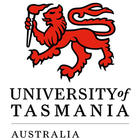Graduate Diploma of Global Logistics and Supply Chain Management
Graduate Diploma of Global Logistics and Supply Chain Management
In the evolving global business economy, businesses enhance and transform their logistics and supply chain systems to gain competitive advantage. With global supply chains evolving and expanding constantly, the understanding of how to develop and implement sustainable, effective, and efficient logistics and supply chain management strategies is key to the…
Categories
COURSE DESCRIPTION
In the evolving global business economy, businesses enhance and transform their logistics and supply chain systems to gain competitive advantage. With global supply chains evolving and expanding constantly, the understanding of how to develop and implement sustainable, effective, and efficient logistics and supply chain management strategies is key to the success of businesses in many industries. The Graduate Diploma of Global Logistics and Supply Chain Management is designed for people who seek professional careers in logistics and supply chain management that are in high demand globally in different industries. The course, consisting of 8 units of study, prepares students with the knowledge of theories, concepts, principles and practice in logistics and supply chain management to make informed decisions in a range of real-world global contexts. It also develops graduates’ analytical skills to develop solutions for problems faced by businesses and enhance their logistics and supply chain performance.
The Graduate Diploma course provides a pathway to the Master of Global Logistics and Supply Chain Management.
Course objectives: The Graduate Certificate in Global Logistics and Supply Chain Management prepares students seeking entry into the industry, either having completed previous study or work experience in a related field or not.
Students are introduced to a wide and accepted body of knowledge informed by practice and research, enabling you to support decision-making in global business contexts. Graduates are equipped with analytical skills and problem-solving methodology to present logistics and supply chain management solutions using a range of sources, including state-of-the-art technologies, practices and managerial innovations.
Learning Outcomes:
1 Support decision-making in global business contexts by applying logistics and supply chain management concepts and practices.
2 Solve logistics and supply chain problems using state-of-the-art technologies, practices, and managerial innovations.
3 Present logistics and supply chain management solutions using a range of sources to specialist and non-specialist audiences.
Career outcomes:
The maritime and logistics industries underpin international business and world trade. They are a key element in sustainable development, and are tightly interconnected with human society: physically, socially and economically.
As such, it is critical that they are managed by highly trained individuals and teams who can lead the development, implementation and control of sound contemporary management practices.
Our Global Logistics and Supply Chain Management courses prepare students for management and senior administrative careers in private enterprises, industry organisations and governments. As a graduate of this program, you can be confident that the skills, knowledge and networks you’ve acquired through study will allow you to succeed in a diverse range of areas: commercial shipping, ports and terminals, transport, transport policy and administration, freight forwarding, exporting and importing, logistics and supply chains, and other elements of international business.
REQUIREMENTS
An undergraduate degree from an Australian higher education institution or the equivalent standard in any other institutions; or A Graduate Certificate; or A qualification of AQF Level 6 or equivalent and a minimum of three years managerial working experience.
International students with English as a second language will need to have an IELTS score of 6.0, with no band less than 6.0.
TOEFL (iBT) – 72 (no skill below: Reading 16; Listening 16; Speaking 18; Writing 22)
PTE Academic 50 with no score lower than 50.
EDUCATIONAL INSTITUTION
The University of Tasmania was officially founded on 1st January 1890 and is located at Sandy Bay, Tasmania. In addition to the main campus at Sandy Bay, it also operates out of the Newnham Campus and the Cradle Coast Campus. The most popular courses offered are the environmental studies that include wilderness management, marine sciences and indigenous studies in Tasmanian literature. Other unconventional courses include agriculture development, studies on the community and population and ocean study programs. The university also comprises of a Music Conservatorium, Art school and a School of Clinical studies.




